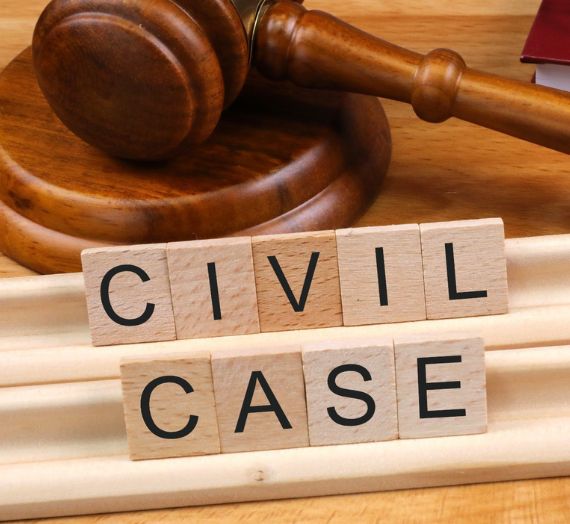Civil Law Queries
-
Definition of Civil Law: Civil law is a branch of law that deals with disputes between individuals or organizations, usually involving claims for damages or specific performance rather than criminal prosecution.
-
Types of Civil Cases: Civil cases can involve various legal issues, including contract disputes, personal injury claims, property disputes, family law matters (such as divorce and child custody), landlord-tenant disputes, and debt collection.
-
Civil Procedure: What is the process for filing a civil lawsuit, and what steps are involved in civil litigation? Civil procedure involves initiating a lawsuit by filing a complaint, serving the defendant, engaging in discovery, presenting evidence, attending hearings, and potentially going to trial.
-
Burden of Proof: In civil cases, what is the burden of proof, and how does it differ from criminal cases? The burden of proof in civil cases is typically lower than in criminal cases, requiring the plaintiff to prove their case by a preponderance of the evidence, rather than beyond a reasonable doubt.
-
Damages and Remedies: What types of damages and remedies are available in civil cases? Damages may include compensatory damages (to compensate for losses), punitive damages (to punish wrongdoing), nominal damages (to acknowledge a legal right), and equitable remedies (such as injunctions or specific performance).

6. Contract Law: What are the elements of a valid contract, and what types of contract disputes can arise? Contract law governs agreements between parties, and disputes may arise over issues such as breach of contract, interpretation of contract terms, or failure to perform contractual obligations.
7. Tort Law: What is a tort, and what types of torts exist in civil law? A tort is a civil wrong that causes harm to another person or property, and examples include negligence, intentional torts (such as assault or defamation), and strict liability torts (such as product liability).
8. Property Law: What types of property disputes can arise, and how are they resolved? Property disputes may involve issues such as boundary disputes, easements, landlord-tenant conflicts, adverse possession, or title disputes.
9. Family Law: What legal issues fall under the umbrella of family law, and how are they addressed in civil court? Family law matters may include divorce, child custody, child support, alimony, paternity disputes, adoption, and domestic violence restraining orders.
10. Civil Rights Law: What are civil rights, and how are they protected under civil law? Civil rights encompass fundamental freedoms and protections guaranteed by law, such as freedom of speech, religion, and assembly, as well as protections against discrimination and violations of constitutional rights.
11. Class Action Lawsuits: What is a class action lawsuit, and how does it work in civil litigation? A class action lawsuit allows a group of individuals with similar claims against a defendant to file a lawsuit collectively, often resulting in greater efficiency and leverage in negotiations or trial.
12. Statute of Limitations: What is the statute of limitations, and how does it impact civil cases? The statute of limitations sets a time limit within which a plaintiff must file a lawsuit after the cause of action arises, and failing to do so within the prescribed timeframe may result in the claim being barred.
13. Settlement and Alternative Dispute Resolution (ADR): What are the benefits of settling civil disputes out of court, and what are common forms of alternative dispute resolution? Settlement negotiations and ADR methods such as mediation or arbitration offer parties greater control over the outcome of their disputes, lower costs, and faster resolution.
14. Legal Representation: Do parties to civil cases need legal representation, and how can they find qualified attorneys? While parties may represent themselves (known as appearing pro se), seeking legal representation from qualified attorneys can help navigate complex legal procedures, advocate effectively, and achieve favorable outcomes.
15. Enforcement of Civil Judgments: How are civil judgments enforced, and what remedies are available to successful parties? Enforcement mechanisms may include wage garnishment, asset seizure, liens, or contempt proceedings for non-compliance with court orders.
16. Appeals Process: Can parties appeal civil court decisions, and what is the appellate process? Parties dissatisfied with the outcome of a civil case may have the right to appeal to a higher court, where appellate judges review the record and legal arguments to determine if errors were made.
17. Legal Costs and Fees: What are the costs associated with filing and litigating civil cases, and how are attorney fees handled? Parties may incur expenses such as court filing fees, deposition costs, expert witness fees, and attorney fees, which may be borne by the losing party in some cases.
18. Precedent and Case Law: How does precedent and case law influence civil litigation and legal outcomes? Courts often rely on precedent (prior court decisions) and established principles of law to interpret statutes, apply legal standards, and resolve disputes consistently.
19. Discovery Process: What is the discovery process in civil litigation, and how does it work? Discovery allows parties to obtain relevant information, documents, and evidence from each other through methods such as depositions, interrogatories, requests for production, and subpoenas.
20. Legal Ethics: What ethical considerations apply to civil litigation, and what standards govern attorney conduct? Attorneys are bound by ethical rules and standards of professional conduct, including duties of loyalty, confidentiality, competence, and zealous advocacy on behalf of their clients.
